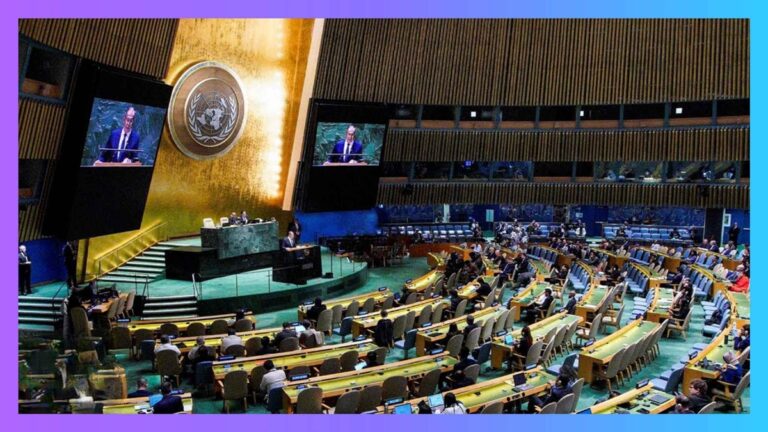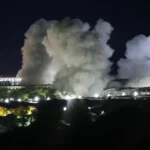
No Commitment to Peace Wastes Valuable Opportunities for Myanmar’s Future
Introduction
Peace in Myanmar has been promised many times. However, promises alone have not been enough. Each attempt at dialogue created hope but ended with disappointment. Because leaders did not fully commit, valuable chances for stability, growth, and unity have been lost.
Today, Myanmar continues to face internal conflict, political struggles, and international pressure. As a result, every missed opportunity for peace comes at a high cost. This article explores why the lack of commitment has wasted so many chances, what lessons can be learned, and how the country can move forward.
Historical Background of Peace Efforts
Myanmar is home to more than 135 ethnic groups. Each group has its own language, culture, and identity. Since independence in 1948, the central government has struggled to bring these groups together under one vision of nationhood.
Several major peace initiatives shaped history:
The Panglong Agreement (1947): This agreement raised hopes for unity, but political changes and the assassination of General Aung San meant it was never fully carried out.
The Nationwide Ceasefire Agreement (2015): Some ethnic armed groups signed, but many others refused. This partial success created uneven results.
21st Century Panglong Conferences: These meetings aimed to revive trust. However, without full inclusion and follow-through, they lost momentum.
In short, agreements were announced but rarely implemented. Each failure deepened mistrust among communities.
Why Lack of Commitment Wastes Opportunities
1. Fragile Agreements Collapse Quickly
Without serious commitment, even small problems lead to collapse. Ceasefires break down, and violence returns to villages.
2. Trust from International Partners Declines
The international community, including the UN and ASEAN, has invested heavily in peacebuilding. When agreements fail, Myanmar’s credibility suffers, and foreign governments hesitate to help again.
3. Economic Growth is Blocked
Peace would bring investment, tourism, and jobs. Instead, businesses see only risk. Therefore, billions of dollars in potential growth are lost each year.
4. Humanitarian Suffering Continues
Displaced families remain in camps. Children cannot attend school. Villages face shortages of food and medicine. In other words, without peace, poverty and suffering deepen.
Lessons from Missed Chances
Every failure teaches a lesson. Some of the most important are:
Include All Stakeholders: Leaving some ethnic groups out only weakens the process.
Rely Less on Force: Military solutions may bring short-term control but never lasting peace.
Be Transparent: Hidden negotiations reduce trust. Open dialogue encourages cooperation.
Listen to Local Voices: Grassroots communities, women, and youth must be included, not just political elites.
As a result, the only real path to peace is inclusive and honest dialogue.
Voices Calling for Peace
Civil society organizations, religious leaders, and youth movements continue to raise their voices.
Religious networks often provide humanitarian aid in war zones.
Women’s groups stress that peace talks must include female leaders.
Young activists urge reconciliation, believing that their generation deserves a different future.
Moreover, many citizens understand that peace is not just about ending war. It is also about fairness, opportunity, and justice.
The Cost of Delay
Every year without peace creates new wounds.
Social Costs: Children grow up with trauma, and divisions between groups become harder to repair.
Political Costs: Weak governance and mistrust prevent effective leadership.
Economic Costs: The World Bank estimates billions in GDP losses due to conflict.
In the end, the longer peace is delayed, the more difficult reconciliation becomes.
The Way Forward
Peace is still possible, but only if actions match words. Myanmar must:
Build Inclusive Platforms
All ethnic groups and civil society representatives need a place at the table.Guarantee Implementation
Peace agreements must have timelines, monitoring, and accountability. Otherwise, they remain only words on paper.Balance Rights and Security
Human rights must be protected while maintaining national security. This balance is necessary to gain trust.Invite Neutral Mediators
Independent international mediators can reduce mistrust between groups.Encourage Economic Cooperation
Shared development projects can unite communities. For example, road building or energy programs benefit all sides and create incentives for peace.
Conclusion
Myanmar stands at a crossroads. Without real commitment, the peace process will continue to fail, and opportunities will continue to be wasted. But if leaders and communities take responsibility, peace is still possible.
The future depends on action, not words. Myanmar has wasted enough chances. Now is the time to commit fully to peace and give the nation a future defined not by division but by unity, not by war but by cooperation.
FAQs
Q1: Why has Myanmar’s peace process failed repeatedly?
A1: Because leaders lacked commitment, excluded key groups, and relied too much on military solutions. Weak follow-through also undermined progress.
Q2: What are the main costs of conflict in Myanmar?
A2: Conflict leads to displacement, poverty, economic losses, and declining international trust. It also damages social unity and political stability.
Q3: How can Myanmar achieve lasting peace?
A3: By including all ethnic groups, guaranteeing agreements, protecting rights, inviting neutral mediators, and building shared economic projects.
Related posts:
 Major General Twan Mrat Naing – Arakan Army Chief
Major General Twan Mrat Naing – Arakan Army Chief
 General Information on the Union of Myanmar
General Information on the Union of Myanmar
 Thakin Kodaw Hmaing — National Poet, Anti-Colonial Leader, and Father of Burmese Political Thought
Thakin Kodaw Hmaing — National Poet, Anti-Colonial Leader, and Father of Burmese Political Thought
 Burmese vs Myanmar: History, Identity, Culture & Language
Burmese vs Myanmar: History, Identity, Culture & Language
 Myanmar’s Crackdown on Shwe Kokko and KK Park Is Not a Reform—It Is an Erasure of Evidence
Myanmar’s Crackdown on Shwe Kokko and KK Park Is Not a Reform—It Is an Erasure of Evidence
 ROHINGYA AND THE NATIONAL UNITY GOVERNMENT (NUG)
ROHINGYA AND THE NATIONAL UNITY GOVERNMENT (NUG)
